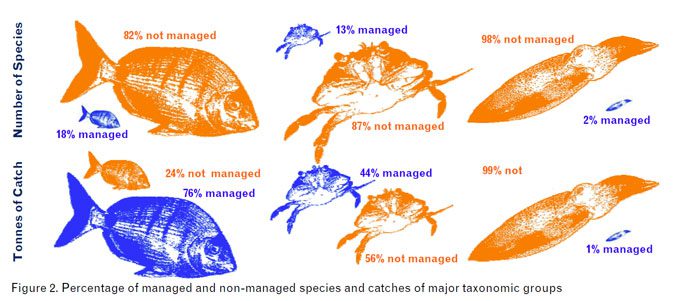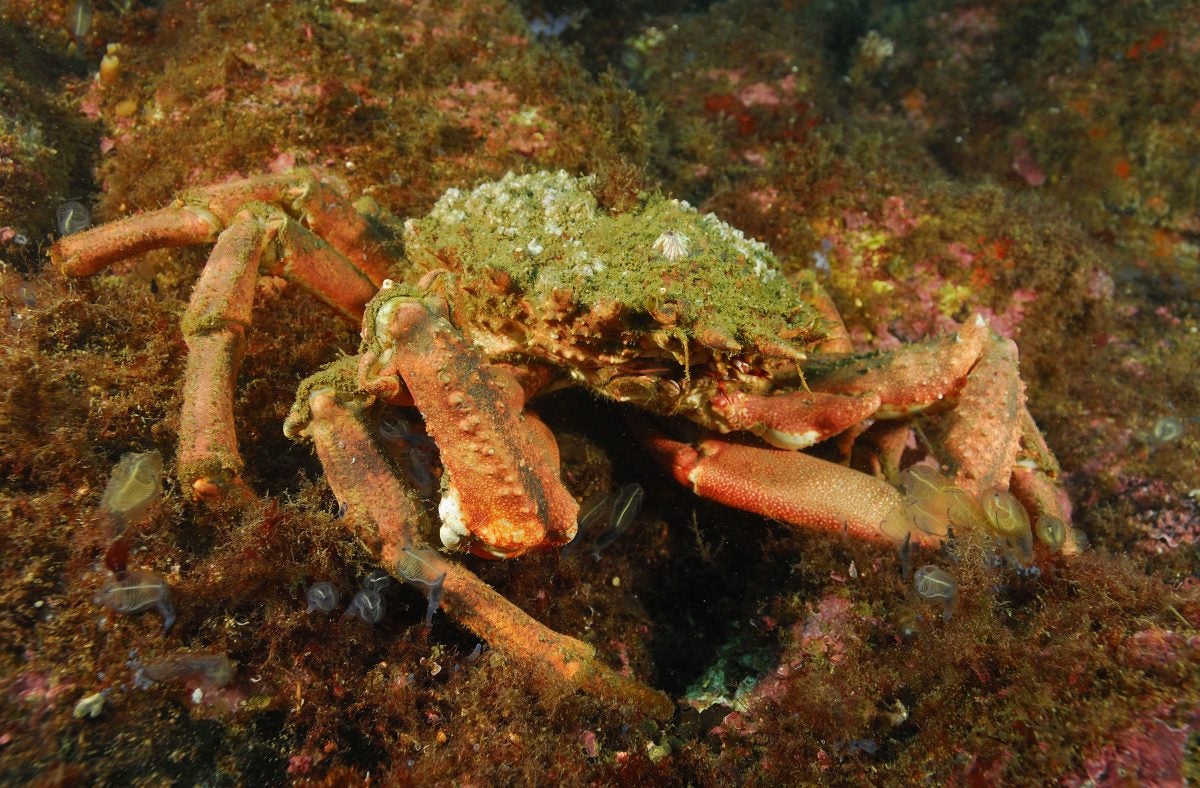Non-Managed Species: What Oceana Does?
In order to attain overarching objectives for a sustainable and viable long term exploitation of fishing resources, a science-based management of all commercially exploited species should be considered the highest priority for decision makers.
- Oceana demands an increase the number of managed species through the progressive establishment of technical measures, effort restrictions and catch limits, based on a science and ecosystem approach. Criteria for selecting the managed species should not be restricted to the number of catches, but should take into account the value of species and their sensitivity to overexploitation.

- The current EU proposal for a new Common Fisheries Policy should include provisions guaranteeing that all commercial fish stocks are covered by management measures, particularly under multi-annual plans and/or TACs and quota systems.
- A major effort should be made in EU waters to increase the number of species managed through scientific based output controls, especially in the Mediterranean Region. For shared stocks, the EU must take the lead in ensuring the adoption of similar measures within the relevant RFMOs.
- A lack of scientific information should not mean a lack of management. The precautionary principle should be applied in all cases where full data is not available, through the setting of precautionary catch limits and other management measures.
- The EU must ensure that the European fleet conducts its activity under the same management conditions both in and outside EU waters.



